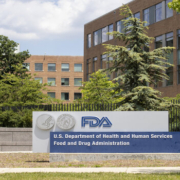The American College of Cardiology’s 73rd Annual Scientific Session & Expo (ACC24) took place over the weekend in Atlanta, spotlighting the latest and most impactful innovations in the field of cardiovascular care.
Featured Posts
 Overcoming the barriers - Clinical trials continue to experience a paucity of diversity, but it will take a multipronged approach to infuse DEI into research.
Overcoming the barriers - Clinical trials continue to experience a paucity of diversity, but it will take a multipronged approach to infuse DEI into research.Nearly a third of patients with advanced liver cancer who received a personalized vaccine developed by Geneos Therapeutics along with an immunotherapy drug in a small, early trial saw their tumors shrink, U.S. researchers reported on Sunday.
The FDA on Tuesday approved the use of Vanda Pharmaceuticals’ atypical antipsychotic Fanapt (iloperidone) for the treatment of manic or mixed episodes in adult patients with bipolar I disorder.
Acorda Therapeutics on Monday announced that it has voluntarily filed for bankruptcy and is seeking Chapter 11 protections to facilitate the orderly transfer of its assets and the winding down of its business operations.
Kintara Therapeutics Inc. and TuHURA Biosciences Inc. announced that they have entered into a definitive agreement for an all-stock transaction forming a company with expertise and resources to advance a risk-diversified late-stage oncology pipeline.
Verve Therapeutics has suspended enrollment in the Phase Ib Heart-1 study evaluating its lead gene editing program VERVE-101 following a serious adverse event, the company announced Tuesday.
The U.S. Food and Drug Administration (FDA) has approved Abbott’s first-of-its-kind TriClip transcatheter edge-to-edge repair (TEER) system that’s specifically designed for the treatment of tricuspid regurgitation (TR), or a leaky tricuspid valve.
The U.S. Court of Appeals for the Federal Circuit on Monday ruled in favor of Teva Pharmaceuticals and Viatris, finding that the final Johnson & Johnson patent over its schizophrenia drug Invega Sustenna is invalid.
AstraZeneca announced Monday that it has secured FDA approval for an add-on to its blockbuster rare disease franchise, providing a potential differentiator as it tries to hold off competition from Novartis, Roche, and biosimilars.
2023 was a banner year for cell and gene therapy, with seven FDA approvals, according to the Alliance for Regenerative Medicine. And the pace doesn’t appear to be slowing at all as the second quarter of this year gets underway. The advocacy group is anticipating an even bigger year for the CGT space in 2024, with a potential 17 approvals in the U.S. and EU combined, according to ARM’s annual Cell & Gene State of the Industry Briefing in January.









